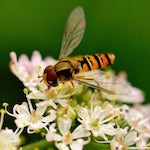Lawmakers in Austria’s lower house of parliament voted to ban all uses of controversial herbicide glyphosate on Tuesday, as the substance faces a slew of lawsuits in the US for potentially causing cancer.
“The scientific evidence of the plant poison’s carcinogenic effect is increasing,” the assembly’s top social democrat, Pamela Rendi-Wagner, said in a statement.
“It is our responsibility to ban this poison from our environment,” she added.
Glyphosate was originally developed by chemical giant Monsanto, a US company that became a subsidiary of Germany’s Bayer last year. The herbicide first appeared on the market under the name of Roundup in 1974. The patent for it has since expired and various companies now produce glyphosate-based weedkillers under different names.
For further information……click on full article link.
Credit: Sustainable Pulse (image: DW)
Full article: hhttps://sustainablepulse.com/2019/07/04/austrian-parliament-votes-to-ban-glyphosate-weedkiller/#.XScAJehKhPY

On land, in the seas, in the sky, the devastating impact of humans on nature is laid bare in a compelling UN report.
One million animal and plant species are now threatened with extinction.
Nature everywhere is declining at a speed never previously seen and our need for ever more food and energy are the main drivers.
These trends can be halted, the study says, but it will take “transformative change” in every aspect of how humans interact with nature.
From the bees that pollinate our crops, to the forests that hold back flood waters, the report reveals how humans are ravaging the very ecosystems that support their societies.
Three years in the making, this global assessment of nature draws on 15,000 reference materials, and has been compiled by the Intergovernmental Science-Policy Platform on Biodiversity and Ecosystem Services (IPBES). It runs to 1,800 pages.
The brief, 40-page “summary for policymakers”, published today at a meeting in Paris, is perhaps the most powerful indictment of how humans have treated their only home.
It says that while the Earth has always suffered from the actions of humans through history, over the past 50 years, these scratches have become deep scars.
For further information……click on full article link.
Credit: BBC (image: Getty Images)
Full article: https://www.bbc.co.uk/news/science-environment-48169783

MPs have approved a motion to declare an environment and climate emergency.
This proposal, which demonstrates the will of the Commons on the issue but does not legally compel the government to act, was approved without a vote.
Labour leader Jeremy Corbyn, who tabled the motion, said it was “a huge step forward”.
Environment Secretary Michael Gove acknowledged there was a climate “emergency” but did not back Labour’s demands to declare one.
The declaration of an emergency was one of the key demands put to the government by environmental activist group Extinction Rebellion, in a series of protests over recent weeks.
Addressing climate protesters from the top of a fire engine in Parliament Square earlier, Mr Corbyn said: “This can set off a wave of action from parliaments and governments around the globe.
“We pledge to work as closely as possible with countries that are serious about ending the climate catastrophe and make clear to US President Donald Trump that he cannot ignore international agreements and action on the climate crisis.”
For further information……click on full article link.
Credit: BBC (image: Reuters)
Full article: https://www.bbc.co.uk/news/uk-politics-48126677

Wild bees and overflies lost from a quarter of the places they were found in 1980, study shows. The study was based on more than 700,000 sightings of bee and hoverfly species from 1980 to 2013.
A widespread loss of pollinating insects in recent decades has been revealed by the first national survey in Britain, which scientists say “highlights a fundamental deterioration” in nature.
The analysis of 353 wild bee and hoverfly species found the insects have been lost from a quarter of the places they were found in 1980. A third of the species now occupy smaller ranges, with just one in 10 expanding their extent, and the average number of species found in a square kilometre fell by 11.
A small group of 22 bee species known to be important in pollinating crops such as oilseed rape saw a rise in range, potentially due to farmers increasingly planting wild flowers around fields. However, the scientists found “severe” declines in other bee species from 2007, coinciding with the introduction of a widely used neonicotinoid insecticide, which has since been banned.
For further information……click on full article link.
Credit: The Guardian.
Full article: https://www.theguardian.com/environment/2019/mar/26/widespread-losses-of-pollinating-insects-revealed-across-britain








